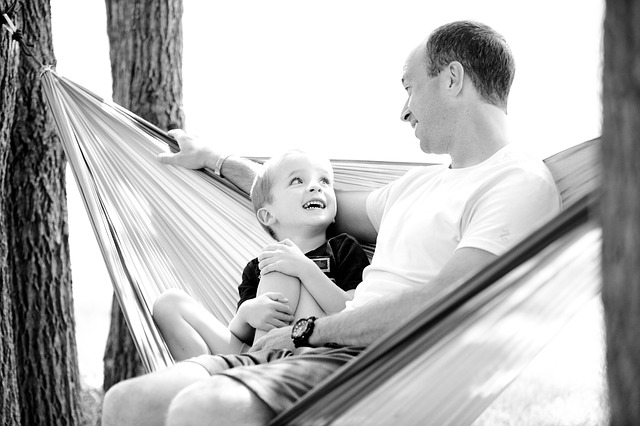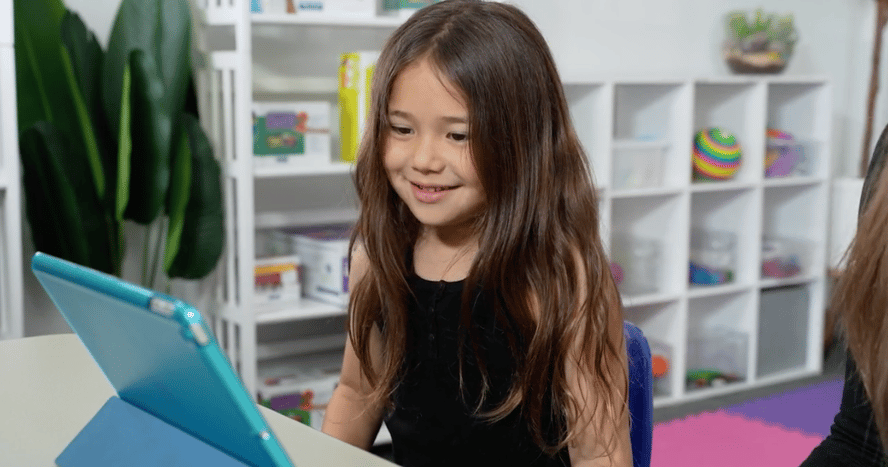
Positive Psychology is a novel and accessible science that focuses on cultivating well-being, positivity, and happiness in the lives of individuals and families. Positive Psychology can help transform the way you parent your child with autism. Change can be created by investing in practices as habits, creating what Dr. Tal Ben-Shahar, a Harvard-trained leader in the field, calls “rituals,” a commitment to incorporating the practices into your life on a regular basis to drive true change. The following five principles from Positive Psychology are a few ways that you as a parent can create rituals to transform your relationship with your child with autism:
1) Relationships are the number one predictor of well-being.
Do you set time aside just for each other?
The most important thing you can do for yourself and for your child is to show up and schedule time for intentional bonding. What does your child love to do? Is it something you can do together? Set aside time each week to be present with each other and teach your child the importance of valuing relationships. Mark this time on a calendar to help hold yourself and family accountable.
Transformation: Create a happiness board together by writing down ideas and sharing images of things that you would all like to do as a family to strengthen your relationship. It could be something as small as having a meal together or as large as planning a vacation. This is also an opportunity for your child to communicate his or her desires through creative, nonverbal means.
2) Rest is just as important as play.
How do you unwind as a family?
 It can often feel like we live in a world where business and productivity are valued above all else. While it’s important to teach your child how to work hard and honor commitments, it’s also essential to impart the value of rest. Be sure to make relaxation activities a family engagement. Teaching your child to unwind and to prioritize self-care is a crucial aspect of facilitating mental and emotional health. Rest is also a great way to spend time with your child without asking for specific demands.
It can often feel like we live in a world where business and productivity are valued above all else. While it’s important to teach your child how to work hard and honor commitments, it’s also essential to impart the value of rest. Be sure to make relaxation activities a family engagement. Teaching your child to unwind and to prioritize self-care is a crucial aspect of facilitating mental and emotional health. Rest is also a great way to spend time with your child without asking for specific demands.
Transformation: Set aside weekly down-time as a family to forge a ritual. It could be a day trip together, or it could be as simple as sharing a story or taking a group nap. Meditation and other mindfulness practices can also be a beneficial ritual to adopt as a family.
3) The silver lining is always there.
Are you bringing appreciative inquiry into your parenting?
Appreciative inquiry is the practice of looking for the good. Become a benefit-finder by always looking for the silver lining. This will help your child build a healthy, grounded sense of self-esteem by recognizing his or her strengths independent of achievement or performance.
Transformation: Note when your child exercises strengths like creativity or kindness. Noticing the good qualities will foster their development faster than trying to stifle the negative ones. Try to use the Meaning, Pleasure, Strengths (MPS) Process to identify when your child does something meaningful, such as making a new friend, something that brings them pleasure, like playing a sport well, and/ or something that highlights a strength, such as displaying empathy. The MPS Process can be used to help your child develop a healthy sense of purpose in life and to help them feel more confident as individuals.
4) Gratitude is the key to savoring the simple moments in life.
What does your child do that makes you grateful?
Gratitude is the simple act of being thankful. How are you grateful for your child? Share this gratitude together.

Transformation: Begin a gratitude journal that your family contributes to in order to keep lists of what you are grateful for in each other and the life you share together. As a nightly ritual, share with each other five things that you are grateful for – whatever feels right for you and your family. It could be something as simple as expressing thanks for your children’s help around the house or being considerate towards others. Try to use appreciative inquiry here to find things to be grateful for even after the most difficult days. Make sure both children and adults in the family have an opportunity to contribute to the list, and encourage your children to keep their own personal lists, too.
5) You have the power to manifest your Fantastic Future.
What are your goals as a family?
A Fantastic Future is the vision your family shares to grow together and strengthen your bonds among one another. According to Ben-Shahar, goals can facilitate growth by serving as guiding principles that connect you to a collective purpose while recognizing and honoring every individual’s values. What do you want your family dynamics to be like in a week, a month, or a year? How can each individual family member participate in building these dynamics?
Transformation: Write your Fantastic Future down together as a family to facilitate open communication and ensure that you all agree on the family goals. Ben-Shahar describes happiness as the intersection of pleasure and meaning. Make sure that you include both pleasurable and meaningful activities and goals that are realistic to attain. Focusing on small changes and rituals to adopt when writing your Fantastic Family Future will increase the likelihood of manifesting this future. This is also a wonderful opportunity for the whole family to show support for your child’s goals and to demonstrate how such goals fit well into the whole family’s Fantastic Future.
Positive Psychology is the art of micro-change. It is not about uprooting your current family habits or forcing change upon each other. Rather, it is about helping each other learn to flourish together – to increase happiness, gratitude, and well-being in each other’s lives. Using these practices in your parenting will express love for your child and bring more positivity into your home to cultivate a happier family.
Ben-Shahar, T. (2007). Happier: Learn the secrets to daily joy and lasting fulfillment (1st ed.).
New York: McGraw-Hill.
Ben-Shahar, T. (2016). Certificate in Positive Psychology. Lecture, Wholebeing Institute.





